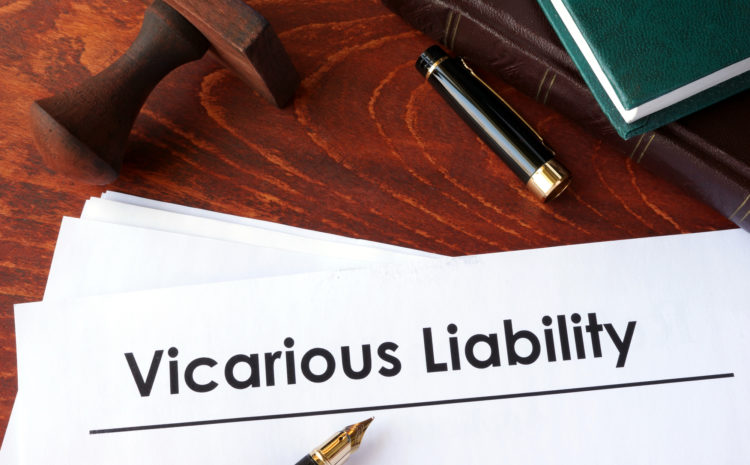
Personal Injury Lawyer
Vicarious liability is liability that is imputed to a party who exercises a supervisory role over a person who has committed a negligent or other wrongful act. This liability is imputed to the supervisory party based on the relationship between the two parties. Vicarious liability is most commonly used to hold an employer liable for their employee’s wrongful acts, called respondeat superior. The doctrine may also be enforced in medical malpractice cases to hold a hospital liable for a doctor’s negligence and where a familial relationship exists between the wrongdoer and party to be held vicariously liable.
Respondeat Superior
Respondeat superior is the vicarious liability doctrine which holds an employer liable for its employee’s negligence when certain circumstances exist. Respondeat superior only applies if the employee’s negligent act occurred within the scope of their employment. An act occurs within the “scope of employment” if the act occurred while the employee was on the clock and was carrying out an activity they were hired to perform and which benefited their employer.
Many states have a “comings and goings” rule of respondeat superior, which states that employees are not acting within the scope of their employment when commuting to and from work in the personal vehicles. There is an exception to this rule if the employer pays the employee for their time spent commuting or asks the employee to run a work-related errand on their way to or from work.
Where an employee combines a personal errand with a work-related task and negligently causes an accident, courts will evaluate whether the errand was a “frolic” or a “detour” to determine whether the employee was acting within the scope of their employment. A frolic is a major departure from the employee’s normal work responsibilities (either in terms of time or distance), while a detour is a minor departure. An employee is acting within the scope of their employment while making a detour, but is not acting within the scope of their employment if their errand is determined to be a frolic.
Other Forms of Vicarious Liability
There are several other common relationships in which vicarious liability will be imputed to one party for the negligence of the other. Partnership businesses are vicariously liable for negligent acts committed by partners. Likewise, a corporation is liable for the negligent acts committed by its officers and directors while performing their job duties. Hospitals and doctors who run clinics can be held vicariously liable for the negligent acts of doctors and other staff employed there, and attending physicians can be held vicariously liable for the negligence of the interns and medical students under their guidance. Additionally, parents can be held vicariously liable for their children’s negligence.
Independent Contractors
Employers are only liable for the negligence of their employees, so employers often defend vicarious liability lawsuits by asserting that the “employee” who acted negligently was actually an independent contractor. A person is an independent contractor if they, rather than the employer, have the right to direct and control their work and the manner in which it will be performed. An independent contractor is thus a person contracted to perform specialized services as a nonemployee. If an employer can successfully show that the wrongdoer is an independent contractor, they will not be vicariously liable for the independent contractor’s negligence.
Thanks to Eglet Adams – well-regarded personal injury lawyers for their insight on vicarious liability.




